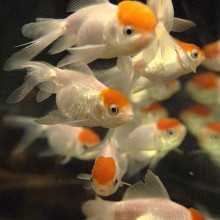As they can't close their eyes, how do fish sleep?& We find out in this Question of the Week.& Plus, we ask if magnetism can really stop limescale from sticking to your pipes...
In this episode

00:00 - Why don't fish have eyelids?
Why don't fish have eyelids?
We put this to Mark Briffa, Marine Behavioural Ecologist, University of Plymouth...
With the first part of this question we really have to go back into the evolutionary history of the vertebrate eye which is the same basic structure in fish and humans.
The eye first evolved in the ancestors of fish. It's well-suited to an aquatic environment where its surface is kept moist all the time. They eye isn't so well-suited to exposure to the air where it could dry out.
The reason fish don't have eyelids is because, underwater, they don't need eyelids. Not having an eyelid doesn't mean that the fish can't go to sleep.
I'm sure that many listeners have experienced falling asleep with the radio on, hopefully not during the Naked Scientists! The reason you can do this is because sleep isn't a complete lack of awareness of what's going on in your surroundings. It's a period of reduced responses to external stimuli.
Not having eyelids to completely shut out the light doesn't mean that fish can't sleep, and a recent study on zebrafish - a common fish species kept as pets - shows that these fish can fall asleep, and when they're sleeping they sink to the bottom of the tank and their tails kind of droop down as they become more relaxed. Some zebrafish apparently even experience insomnia.
Learning how long, and how often, fish can sleep for (and it's quite a new area) could help us with understanding sleep problems in humans...










Comments
Add a comment